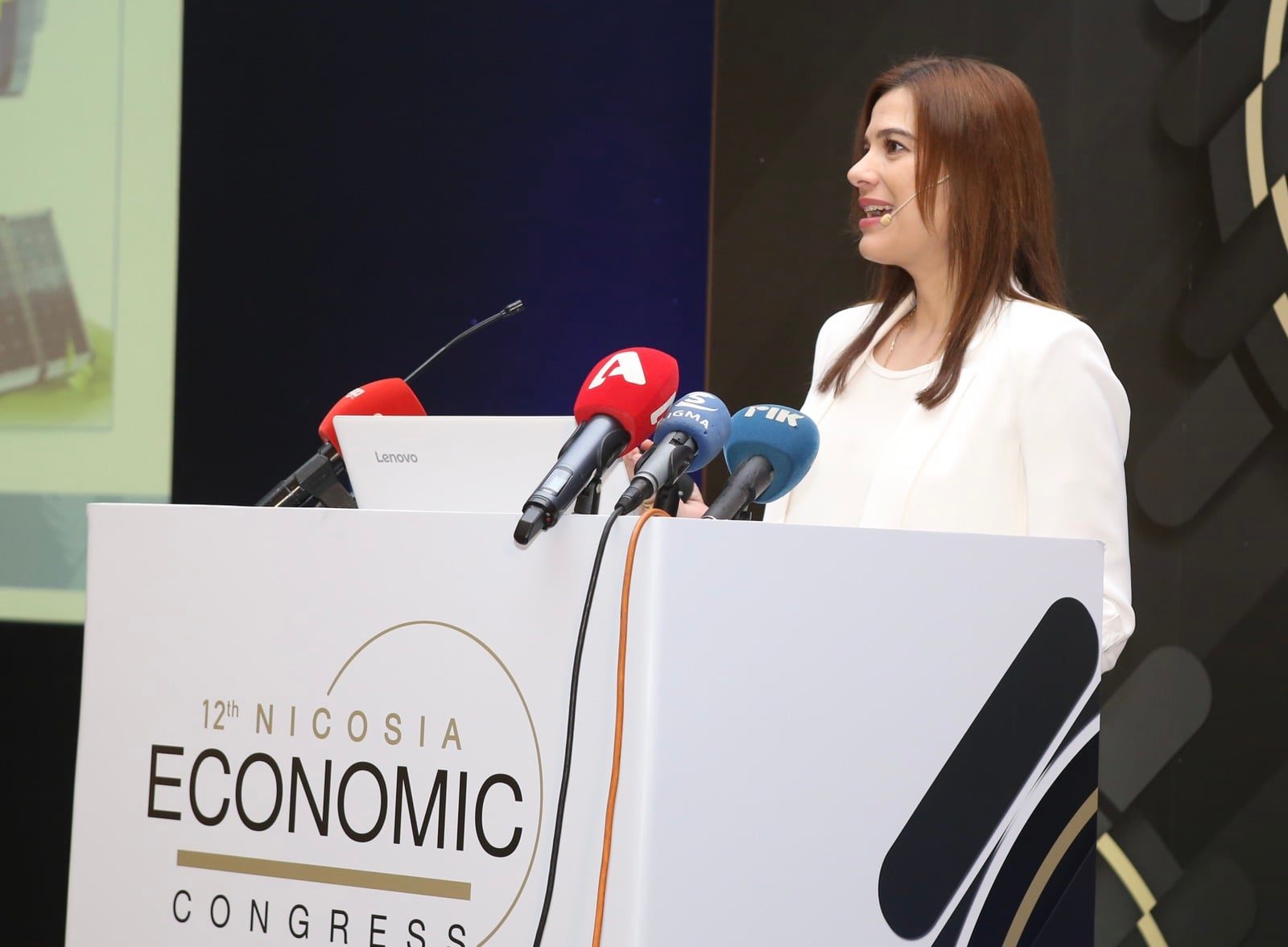By Kyriacos Nicolaou and Elias Hazou
Inflation is probably here to stay, Finance Minister Constantinos Petrides said on Tuesday, voicing doubts about the planned transition to ‘green energy’.
He made the remarks during a panel discussion at the 12th Nicosia Economic Congress, organised by Gold magazine and the Institute of Certified Public Accountants. The event is geared at business leaders, diplomats, politicians and other decision-makers.
Speaking about current events, Petrides said what concerns him the most is inflation, calling it the “most dangerous parameter” of the current economic crisis.
He said the situation now has the attributes of the 1970s oil crisis, and is very difficult to deal with as the inflation is imported due to the geopolitical situation (the war in Ukraine), the rise in energy prices and grains.
And it is not known when inflation will subside, he added.
“If this situation persists, then certainly many countries will need to adjust their economic policies,” Petrides said.
“More funds from the budget will need to be diverted to the vulnerable, so as to avert energy poverty and protect the more vulnerable groups, as it is they who are most hurt by inflation.”
He added: “The issue is that inflation should not continue, and on that I am not very optimistic.”
On the banking sector, the minister said its exposure to Russia is minimal – around 3.8 per cent of deposits. And Russia’s central bank does not have any reserves in Cyprus.
“Certainly some transactions will be affected, but the impression that Cyprus is hyper-exposed is wrong.”
Regarding the ‘green transition’ – disengaging from fossil fuels – Petrides suggested that the issue of ‘green taxes’ ought to be reassessed in order to smooth over the changeover.
This would avoid severe societal impacts, given the very high ‘green’ targets set by the European Union, and which some wonder how realistic they are.
His comments sparked a disagreement with Energy Minister Natasa Pilides, also on the panel.
Pilides said ‘green taxes’ are part of the ‘green transition’, noting that the higher taxes on fossil fuels does not necessarily mean that, cumulatively, Cypriot consumers will be burdened.
At the same time, she noted, a number of schemes are being rolled out to incentivize people to switch, such as vehicle replacements, while other schemes give businesses “a major opportunity” to reduce electricity costs.
Coming back, Petrides said: “Theoretically, Natasa is right, and supposedly green taxes are supposed to come together with offset measures.
“But in reality, inflation leads to inflationary inequalities, and it does not mean that the programmes and schemes now being offered will avoid these inequalities, particularly when it comes to the vulnerable.”
Noting he is in favour of a “smoother transition”, the finance minister spoke of “incredible investments that are needed to achieve these things.”
Should the ‘Fit for 55’ programme – European Union plan to reduce greenhouse gas emissions by 55% by 2030 – be implemented, it would require an additional €1 billion in investments.
Investments on such a scale signal that the transition would not be fiscally neutral.
“People should be aware that their standard of living may be affected.”
Whereas the government has tried to deal with the fallout by implementing short-term measures, but these measures cannot be sustained indefinitely.
For her part, Pilides said that whereas the emphasis is on shielding vulnerable groups, the government measures aim to restrain prices rather than lower them – the latter is not feasible.
Regarding the mooted EastMed pipeline, the energy minister said the United States is not involved in any way, other than the geopolitical support that it could provide to the project.
During a visit to the region last week, US Under Secretary of State for Political Affairs Victoria Nuland effectively sounded the death knell for the pipeline, calling it expensive and unviable and calling for alternative solutions to dependence on Russian resources.
But Pilides insisted the pipeline project does have political support as one of the EU’s options for energy diversification. She said feasibility studies for the EastMed are ongoing. Beyond the construction cost, these studies should look at the available export markets and which countries would commit to the quantities on offer.
The project managers should also examine the possibility of the pipeline carrying hydrogen, so as to make the pipeline a viable business operation long term.
“There are still a great deal of uncertainties [with the EastMed], so if I were the implementing agency I’d want to move really fast, since an opportunity presents itself that can be made the most of.”
Pilides argued that Israel and Egypt have large domestic energy markets, therefore it is unclear whether all their natural gas would go to exports to the EU.
Responding, Petrides asked how anyone would invest hundreds of millions into the pipeline when the EU is constantly saying that the price of natural gas will drop – making the venture unprofitable.
On Cyprus’ offshore natural gas reserves, Pilides said Cyprus intends to pursue its exploration programme, which is part of the plan to achieve energy independence.
However, it would take some years more to develop the discovered gas fields.
Despite that, Pilides sounded an upbeat note that given the “excellent cooperation” with Egypt and Israel, Cyprus can be a part of this plan, ensuring sustainable growth commensurate with ‘green development’ and weaning off of fossil fuels and natural gas by 2050.








Click here to change your cookie preferences